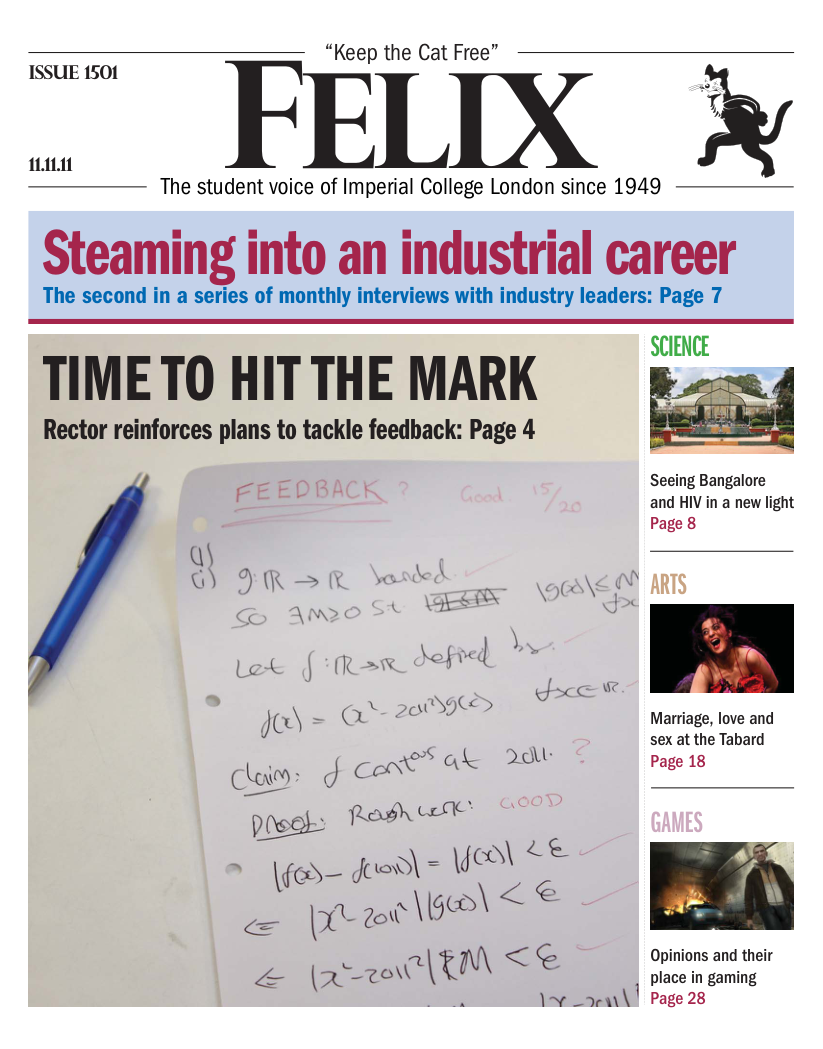When will we be satisfied with feedback?
Rector talks the talk on feedback, but will we see any improvement?
This week saw the release of a summary of the annual Rector’s Away Day, with Sir Keith O’Nions announcing a statement pledging to improve the ‘undergraduate experience’, with the improvement of assessment and feedback becoming a priority in this aim. The battle against feedback has been continuing for some time now, however, and it may ultimately fall to tackling the individual marker rather than the department when it comes to improving feedback across College.
The College seeks to improve the ‘undergraduate experience’ through the enforcement of such commitments as assessing the provision of undergraduate accommodation and improving the feedback that students receive for their assignments.
This specific mention towards feedback (especially considering the clear reference towards the results of the 2011 National Student Survey) may appear familiar to some of you. This would not be particularly surprising, particularly since October 2010 saw that year’s National Student Survey reveal issues – again – with Imperial’s student feedback. At the time, the Rector became personally involved in an attempt to improve assessment and feedback across all College departments.
Now, it appears that history is repeating itself. It is commendable that the College continues to recognise that feedback is a problem for students. However, the Away Day has resulted in recommendations such as ‘Points for departments to consider’, with one such point declaring that departments should aim to ‘be clear with students as early in the course as possible about: what constitutes feedback, submission deadlines for assignments and when feedback will be returned.
Surely, points such as this must have been at least considered last year in the attempt to improve feedback at that time and hammered home inside departments.
Ultimately, the problem rests with the individual, and not the department. Faculties responded last year with the attempted implementation of a two-week turnover for feedback. While this may be achieved in a variety of cases, the quality of this feedback is truly what matters. It is simply unreasonable to expect all markers to provide uniform effort towards the marking of coursework or reports.
Until the College and departments are able to improve the willingness, or at least awareness, of the marker to provide decent feedback to students (and an increased use of the word ‘feedback’ itself is a potentially effective way of ensuring this), then for all its promises and pledges, feedback and assessment will remain contentious among students.







